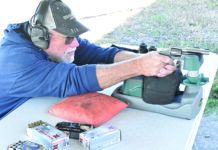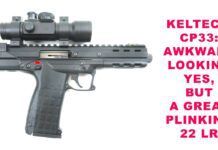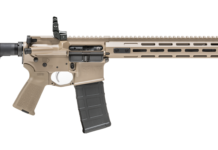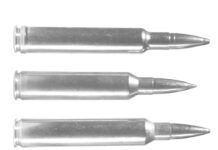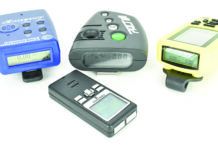Rhode Island is a shall-issue state. Concealed carry is legal in Rhode Island with a License to Carry Concealed Weapons (LCCW). Licenses are available to residents at least 21 years old. Concealed-carry permits are issued at the local level by the police chief or by the attorney general.
Is there a waiting period to buy a firearm in Rhode Island?
Yes. There is a seven-day waiting period to buy a firearm in Rhode Island.
Is a permit required to purchase a handgun in Rhode Island?
Yes. A permit, known in Rhode Island as a Blue Card, is required to purchase handguns. There is no permit required to buy long guns.
Do you need to register handguns in Rhode Island?
No. Handguns, rifles and shotguns do not have to be registered in Rhode Island.
Who is eligible to obtain a License to Carry Concealed Weapons (LCCW) in Rhode Island?
Any Rhode Island resident at least 21 years of age can apply for a License to Carry Concealed Weapons (LCCW).
Is firearms training a requirement in Rhode Island for a License to Carry Concealed Weapons (LCCW)?
Yes. A firearms-training course is required for a for a Rhode Island License to Carry Concealed Weapons (LCCW).
What are the requirements to obtain a License to Carry Concealed Weapons (LCCW) in Rhode Island?
Applicants for a Rhode Island License to Carry Concealed Weapons (LCCW) must:
- Be a Rhode Island resident
- Be at least 21 years of age
- Complete a firearms-safety course
- Have reason to fear an injury to his or her person or property, or have any other proper reason to be licensed
- Have three letters of reference
- Must meet federal law requirements
What are the steps to obtain a License to Carry Concealed Weapons (LCCW) in Rhode Island?
- Complete a firearms training course
- Download and complete an application on the Rhode Island Attorney General website ri.gov. Have the application notarized.
- Obtain three references and three notarized reference letters (a total of six separate references).
- Submit the application to the attorney general, local police chief or city hall official with two FBI fingerprint cards, two forms of ID, two passport-style photographs, two copies of your birth certificate, firearms-training certificate, letter with reason for permit, and the fee. If the license is to be used for employment, the typed-and-signed letter of explanation must be submitted on company letterhead along with a copy of the business license as proof that the business exists. If the license is not for employment, the typed-and-dated letter must be submitted by the applicant stating the reasons why a license is needed on a full-time basis. You will be notified in 90 days if your application has been approved.
How much does a Rhode Island Concealed Carry Permit cost?
The fee for a Rhode Island License to Carry Concealed Weapons (LCCW) is $40.
Does Rhode Island recognize concealed-carry pistol permits from other states?
No. Rhode Island does not honor concealed-carry permits issued by other states.
Is Rhode Island a Constitutional Carry state?
No. Rhode Island is not a Constitutional Carry state.
Is Rhode Island an Open Carry state?
Sometimes. Open carry is legal with a Rhode Island License to Carry Concealed Weapons (LCCW) issued by the attorney general. A License to Carry Concealed Weapons (LCCW) issued by local authorities is not legal for open carry, only concealed carry. Long guns are prohibited from being carried in public.
Is Rhode Island a Stand Your Ground state?
No. Rhode Island is not a Stand Your Ground state. State law imposes a duty to retreat.
Are AR-style and other semi-auto rifles legal in Rhode Island?
Yes. Magazine-fed semi-auto rifles are legal to buy and possess in Rhode Island.
Are standard-capacity magazines allowed in Rhode Island?
No. Magazines capable of holding more than 10 rounds are banned in Rhode Island.
Does Rhode Island have gun-storage laws?
Yes. The Rhode Island gun-storage law mandates that firearms be stored in secured or locked containers, or be equipped with a tamper-resistant lock or other safety device.
Is Rhode Island a Red Flag state?
Yes. A law-enforcement agency may file a petition enjoining the respondent from having in his possession, custody or control any firearms, and shall further enjoin the respondent from purchasing, receiving, or attempting to purchase or receive, any firearms while the order is in effect.


